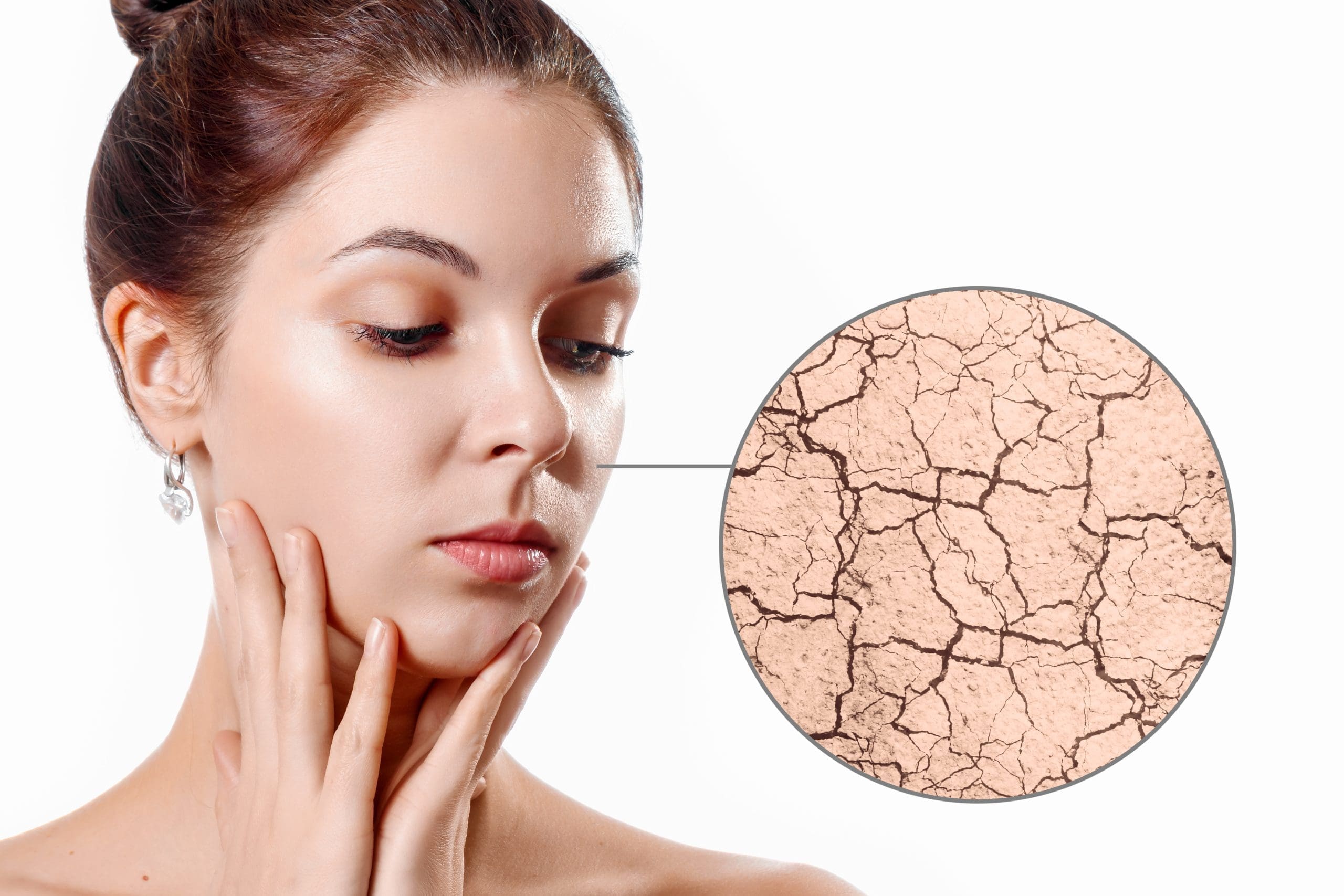Dry skin, medically referred to as xerosis, is a prevalent dermatological concern that can affect individuals of all ages. It can lead to discomfort, itching, redness, and a general feeling of tightness or unease. While its root causes are diverse, they often include genetic predisposition, environmental factors, aging, and lifestyle choices. The symptoms of dry skin, such as roughness, scaliness, and itchiness, are commonly noticed on exposed areas like the arms, legs, hands, and face. Individuals living in dry climates may be at a higher risk, as are those who excessively bathe or shower with hot water, use harsh soaps, or have certain medical conditions.
How to avoid dry skin?
When these natural oils are insufficient, dry skin can develop. Although staying well-hydrated by drinking water is essential for overall health, it may not be a direct cure for dry skin. However, it remains crucial for overall skin health and functioning. Hot showers can exacerbate dry skin, as hot water can strip the skin of its natural oils. Opting for lukewarm water and limiting shower or bath time can mitigate this effect. Sunscreen is crucial for protecting the skin from harmful UV radiation, which can worsen dry skin. Additionally, choosing appropriate clothing, such as long sleeves and wide-brimmed hats, can help shield the skin from harsh environmental conditions and prevent excessive moisture loss.
Using humidifiers in your home can help combat dry skin, especially during the winter months when indoor heating systems tend to deplete indoor air moisture. Avoiding skincare and hygiene products with alcohol, fragrances, or other harsh ingredients can minimize skin irritation. It’s also important to note that dry skin can sometimes be an indication of an underlying medical condition, like hypothyroidism or diabetes. If you have persistent dry skin that doesn’t respond to over-the-counter treatments, consulting a healthcare professional for a proper evaluation and treatment is advisable. Management and prevention of dry skin often involve making lifestyle adjustments, adopting a regular skincare routine, and using appropriate products. Mild cases can be addressed by using gentle skincare products and regularly moisturizing the skin. For more severe instances, a dermatologist may prescribe medications or topical treatments to alleviate symptoms.
Suitable face mask for dry skin.
1-Hydrating Masks: These masks are specifically formulated to deliver deep hydration to the skin. They often contain ingredients like hyaluronic acid, glycerin, and aloe vera, which can help attract and retain moisture in the skin. Look for masks labeled as “hydrating” or “moisturizing.”
2-Sheet Masks: Sheet masks are pre-soaked fabric masks that are typically infused with hydrating serums or essences. They come in a variety of formulations, including those designed to provide intense moisture. The sheet helps seal in the product and allows for better absorption into the skin.
3-100seconds Hydrating Daily Mask Madeline: mask that formulated for skin hydrating, ski moisturizing as well as improving the function of skin’s barrier. It helps to retain the skin moisture, and increase the water content and prevent loss from skin cells.
Preventing dry skin is as vital as managing it. This requires avoiding triggers, implementing a proper skincare regimen, and making lifestyle changes to ensure your skin remains hydrated and healthy. Regularly moisturizing your skin and using protective clothing can significantly reduce the risk of developing dry skin. Dry skin can be a persistent issue, but with the right approach and proper care, it can be managed effectively, ensuring your skin stays healthy and comfortable.
